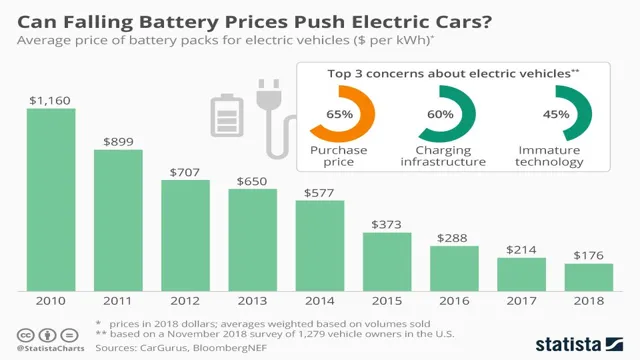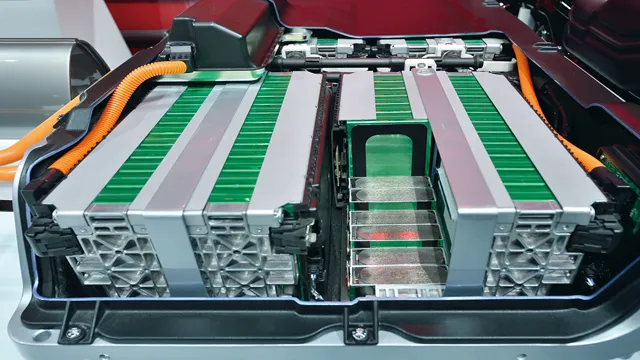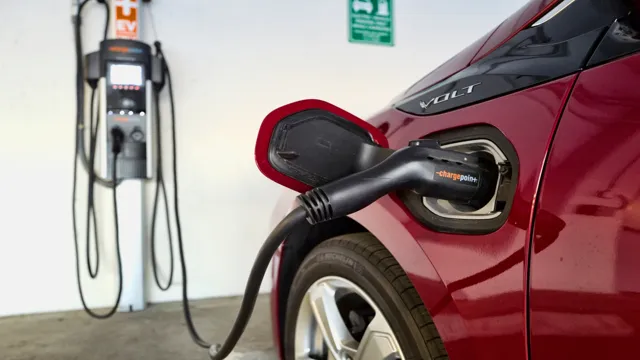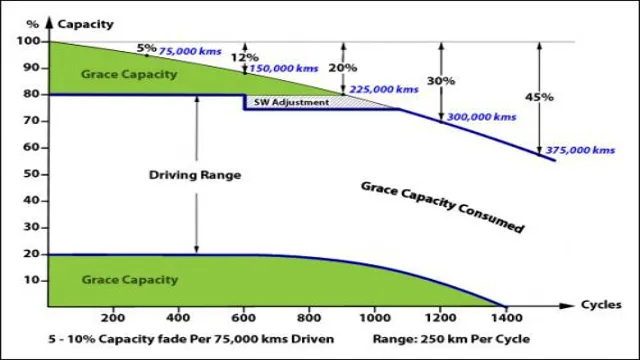Rev up Your Ride With the Ultimate Guide to Car Electric Battery Costs: Everything You Need to Know!
Electric cars have become increasingly popular in recent years as people are more concerned about the environment and reducing their carbon footprint. However, one of the biggest concerns that potential buyers have is the cost of electric car batteries. While electric cars are cheaper to operate than traditional gasoline-powered cars, the initial investment can be daunting.
This is because the cost of electric car batteries is still relatively high. In this blog post, we will explore the cost of electric car batteries, how they are priced, and what factors affect their cost. So, if you are interested in buying an electric car or want to learn more about the cost of batteries, keep reading.
Electric Battery Price Comparison
When thinking about making the switch to an electric car, one major consideration is the cost of the electric battery. The good news is that, overall, car electric battery cost has been dropping in recent years. In fact, in 2010 it was estimated that electric car batteries cost anywhere between $1,000 and $1,200 per kilowatt-hour.
By 2019, that number had dropped to between $137 and $186 per kilowatt-hour. However, the cost can still vary depending on a number of factors, including the brand and model of the car, as well as the size and capacity of the battery. It’s important to do your research and compare prices before making a decision on which electric car to purchase.
So while the cost of electric car batteries is still a consideration, it’s important to keep in mind that the overall cost of electric cars is also coming down, and that long term savings on fuel and maintenance costs can make the investment worthwhile.
Cheapest and Most Expensive Electric Car Batteries
Electric Battery Price Comparison Electric cars have become a more popular choice for eco-conscious individuals due to their environmentally-friendly nature. As electric vehicles gain momentum, the prices of batteries become a crucial consideration. The more affordable the battery, the lesser the cost of the car.
Currently, the cheapest electric car battery on the market is from Tesla, with a price range of about $125 per kilowatt-hour. On the other hand, the most expensive battery is from Lucid Motors, with a price tag of approximately $186 per kilowatt-hour. The significant price difference between the two brands is due to the technological superiority of Lucid.
It uses a unique solid-state battery that is more efficient and safer than traditional lithium-ion batteries. Even though the technology is more advanced, it hasn’t yet reached mass production, making it expensive to manufacture. However, as the competition among electric car manufacturers increases, the cost of batteries is expected to decrease, making electric cars even more accessible to people.

Factors Affecting Electric Battery Cost
Electric Battery Price Comparison The price of an electric battery is one of the most significant factors affecting the overall cost of an electric vehicle. The cost of the battery pack is directly related to the size of the battery, which is measured in kilowatt-hours (kWh). A higher kWh rating translates to a higher cost, making larger battery packs more expensive than smaller ones.
Additionally, the cost of batteries is affected by the type of battery chemistry used. Lithium-ion batteries, for example, are the most commonly used battery type in electric vehicles because they offer the best balance between energy density, cost, and lifespan. When comparing electric battery prices, it’s important to consider the total cost of ownership over the battery’s lifespan.
While lithium-ion batteries are more expensive upfront, their longer life expectancy and higher energy density often lead to lower overall ownership costs. The cost of electric batteries has been steadily decreasing in recent years as demand for electric vehicles has risen. As more manufacturers enter the market, competition will continue to drive down prices.
Overall, the price of electric batteries is an important consideration for those looking to purchase an electric vehicle. However, it’s important to remember that the cost of electric cars is likely to continue declining as battery technology improves and manufacturing processes become more efficient.
Electric Battery Lifespan and Cost
In recent years, electric vehicles have emerged as a more eco-friendly transportation option. One important aspect of these vehicles is their battery lifespan and cost. While electric car battery costs have decreased over the years, they still remain a significant investment.
Additionally, battery lifespan can vary depending on vehicle usage and charging practices. It is important for electric vehicle owners to properly maintain their batteries to ensure optimal performance and longevity. This includes avoiding excessive heat exposure and fast charging when possible.
While it may seem daunting to invest in an electric car battery, the benefits of reduced emissions and potential cost savings on fuel make it a worthwhile consideration. As technology continues to advance, it is likely that electric car battery costs will continue to decrease and lifespan will continue to improve.
Average Lifespan of an Electric Car Battery
When it comes to electric cars, the lifespan of the battery pack is a common concern. How long will it last? And how much will it cost to replace? The average lifespan of an electric car battery is around 8 years or 100,000 miles, whichever comes first. This means that on average, owners can expect to replace their battery pack at least once during the lifetime of their electric car.
The cost of a new battery pack varies depending on the make and model of the vehicle, but generally ranges from $5,000 to $15,000. However, factors such as temperature, driving habits, and charging practices can significantly impact the lifespan of the battery. It’s important for electric car owners to properly maintain their battery and consider these factors when evaluating the overall cost of ownership.
While the initial cost of an electric car may be higher than a traditional gasoline vehicle, the lower cost of fuel and maintenance, as well as potential tax credits, can make electric cars a more cost-effective choice in the long run.
Replacing Electric Car Battery: Cost Analysis
When it comes to electric cars, one of the most important factors to consider is the lifespan and cost of their batteries. While the lifespan of an electric car battery varies depending on the make and model, it typically ranges from 8 to 10 years. After that, the battery may start to degrade, reducing its ability to hold a charge and impacting the vehicle’s performance.
At this point, it becomes necessary to consider replacing the battery. The cost of replacing an electric car battery varies significantly, depending on the size of the battery and the make and model of the car. On average, the cost can range anywhere from $3,000 to $10,000 or more.
However, with advancements in technology and increased production, experts predict that the cost of electric car batteries will continue to decrease in the coming years. Ultimately, while replacing an electric car battery can be a costly process, it can also help extend the lifespan of your vehicle and keep it running smoothly for years to come.
Tips for Extending Electric Car Battery Life
As electric cars become more popular, people are becoming increasingly interested in how to extend the lifespan of their vehicle’s battery. The lifespan of an electric car battery can vary depending on many factors, including the quality of the battery, how often it’s charged, how often it’s discharged, and how the car is driven. However, experts estimate that the average electric car battery will last anywhere from 8 to 10 years before needing to be replaced.
The cost for a new electric car battery can be quite high, ranging anywhere from $5,000 to $15,000, so it’s important to take steps to ensure that your battery lasts as long as possible. By maintaining the battery’s health, avoiding extreme temperatures, and charging the battery correctly, you can help extend the lifespan of your electric car battery and avoid costly replacements.
Future of Electric Car Batteries
Car electric battery cost is one of the most important factors to consider when looking into the future of electric car batteries. Fortunately, advancements in technology are leading to lower costs and increased efficiency. As electric cars become more popular and production increases, the cost of electric batteries is expected to continue decreasing.
Furthermore, there are numerous initiatives underway that aim to develop new battery technologies that are less expensive and more durable. As these technologies become more widespread, it is likely that the cost of electric batteries will drop even further. Ultimately, the future of electric car batteries looks bright as continued innovation and investment lead to improved performance, longevity, and affordability.
Expected Cost Trends for Electric Car Batteries
Electric Car Batteries Electric car batteries are forecasted to continue to decrease in cost. The automotive industry is transitioning towards electric cars, and as this shift continues, reducing the high costs of batteries is becoming increasingly important. The good news is that researchers are working on this issue and making significant progress in battery technology.
The decreasing costs of batteries will make electric vehicles more affordable for consumers. The battery industry is expected to continue making strides in developing better materials and producing batteries in larger, cost-effective quantities. Additionally, with the increasing demand for electric vehicles, it is likely that manufacturing facilities will become more efficient, further decreasing the cost of batteries.
Overall, the cost reduction of electric car batteries is a positive development for the future of electric vehicles as it will make them more accessible to consumers and reduce the environmental impact of car travel.
Developments in Electric Battery Technology
Electric car batteries are constantly evolving, and advancements in technology indicate that the future is looking bright for electric vehicles. Experts are currently exploring various avenues to improve battery efficiency, range, and safety. One promising development is the increased use of solid-state batteries.
Unlike traditional lithium-ion batteries, solid-state batteries replace the liquid or gel electrolyte with a solid material, providing better conductivity, faster charging, and a longer lifespan. Another exciting possibility is the use of lithium-sulfur batteries, which hold more energy than current lithium-ion models. As technology continues to advance, electric car batteries have become more affordable and practical, making them an increasingly popular choice among environmentally-conscious consumers.
As a result, the market for electric cars is expected to continue its rapid growth in the coming years. The future of electric car batteries looks bright, with endless possibilities for innovation and improvement.
Conclusion
In the world of car electric battery cost, it’s important to remember that while initial prices may be high, the long-term benefits of lower fuel and maintenance costs make it a smart investment for both your wallet and the environment. So, don’t let the sticker shock scare you off – embrace the electric revolution with open arms (and a full charge)!”
FAQs
What is the average lifespan of an electric car battery and how does it compare to traditional car batteries in terms of cost?
The average lifespan of an electric car battery is around 10 years. While the upfront cost of an electric car battery is higher compared to a traditional car battery, the cost of ownership over its lifetime is typically lower since electric car batteries require less maintenance and have lower fuel costs.
How much does it cost to replace an electric car battery compared to a traditional car battery?
The cost of replacing an electric car battery varies based on the make and model of the car. However, it typically ranges from $5,000 to $15,000. Traditional car batteries cost significantly less, usually ranging from $100 to $300.
How do you know when it’s time to replace your electric car battery and how can you prolong its lifespan?
When an electric car battery begins to lose its capacity, you may notice a decrease in range and performance. You can prolong the lifespan of your electric car battery by avoiding deep discharges, charging it regularly, and keeping it at a moderate temperature.
Can you get a discount on an electric car battery replacement through your car manufacturer or insurance company?
Some car manufacturers offer warranties or discounts on electric car battery replacements. Additionally, some insurance companies may cover the cost of replacement if the battery is damaged due to an accident or other covered event. It’s always best to check with your manufacturer and insurance provider for details on their specific policies.







